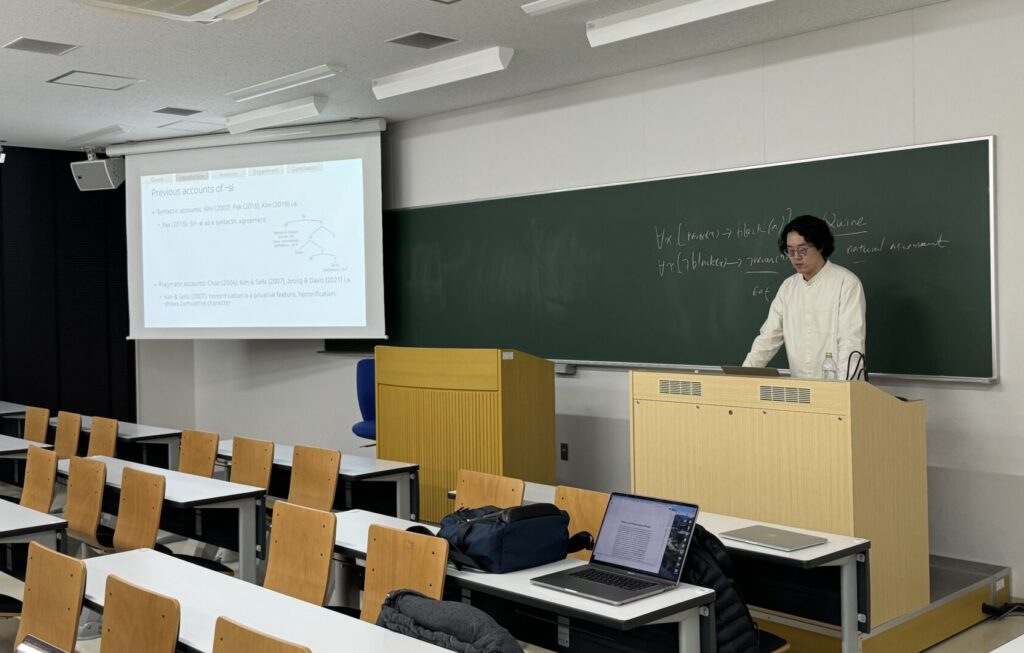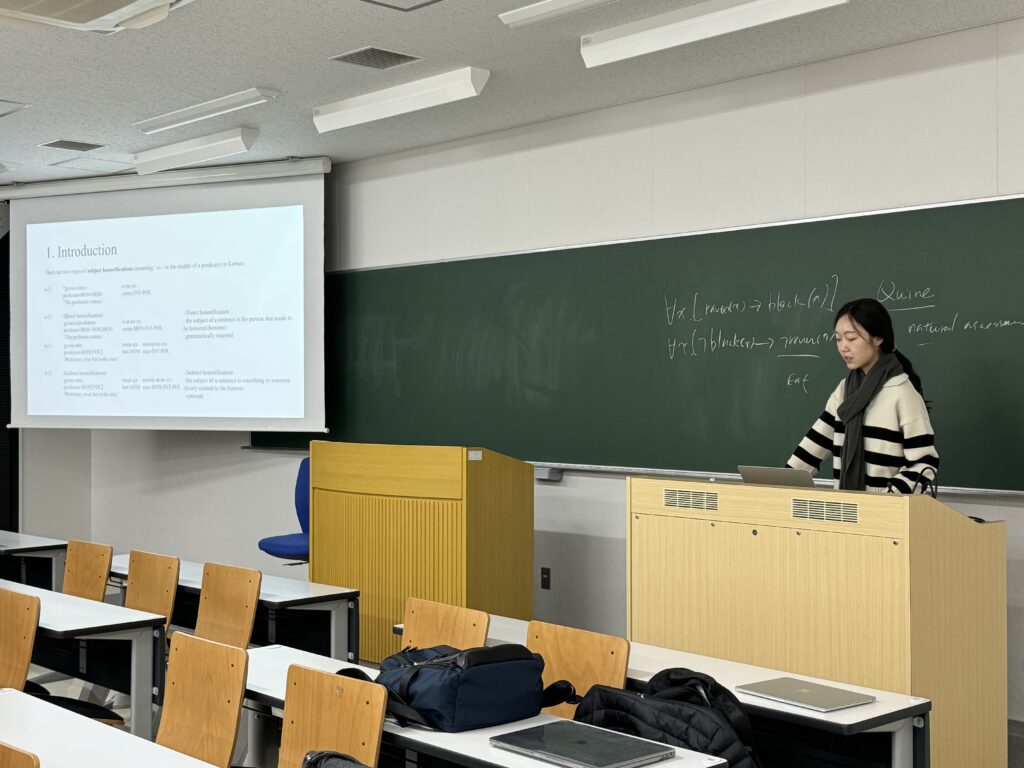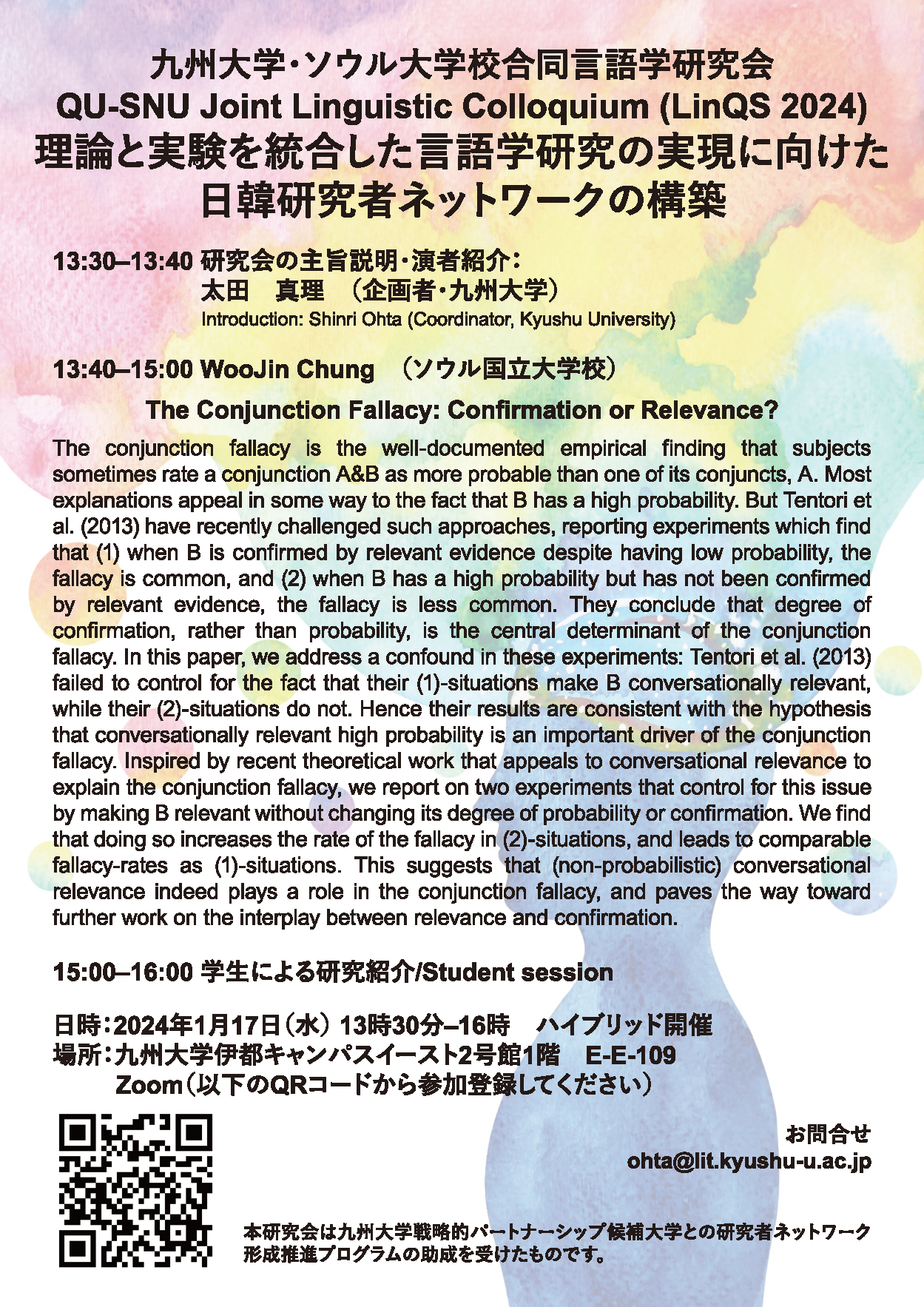九大・ソウル大合同言語学研究会
以下の日時・場所で九大・ソウル大合同言語学研究会 (LinQS 2024) 「理論と実験を統合した言語学研究の実現に向けた日韓研究者ネットワークの構築」を開催しました。ソウル大学言語学科のWooJin Chung助教授による講演に加え、大学院生2名による研究発表も実施しました。以下のGoogleフォームから参加登録をお願いいたします。
日時:2024年1月17日(水) 13時30分〜16時
場所:九州大学伊都キャンパスイースト2号館1階 E-E-109 & Zoom (ハイブリッド開催)
参加登録:https://forms.gle/N8pT5Y8XM5rLJEwq5

演者:WooJin Chung助教授(ソウル国立大学校・言語学科)
演題:The Conjunction Fallacy: Confirmation or Relevance?
要旨:The conjunction fallacy is the well-documented empirical finding that subjects sometimes rate a conjunction A&B as more probable than one of its conjuncts, A. Most explanations appeal in some way to the fact that B has a high probability. But Tentori et al. (2013) have recently challenged such approaches, reporting experiments which find that (1) when B is confirmed by relevant evidence despite having low probability, the fallacy is common, and (2) when B has a high probability but has not been confirmed by relevant evidence, the fallacy is less common. They conclude that degree of confirmation, rather than probability, is the central determinant of the conjunction fallacy. In this paper, we address a confound in these experiments: Tentori et al. (2013) failed to control for the fact that their (1)-situations make B conversationally relevant, while their (2)-situations do not. Hence their results are consistent with the hypothesis that conversationally relevant high probability is an important driver of the conjunction fallacy. Inspired by recent theoretical work that appeals to conversational relevance to explain the conjunction fallacy, we report on two experiments that control for this issue by making B relevant without changing its degree of probability or confirmation. We find that doing so increases the rate of the fallacy in (2)-situations, and leads to comparable fallacy-rates as (1)-situations. This suggests that (non-probabilistic) conversational relevance indeed plays a role in the conjunction fallacy, and paves the way toward further work on the interplay between relevance and confirmation.


大学院生による講演:
Gyu-Hwan Lee, “Verb raising and licensing of subject honorific marker in Korean: an experimental study”
Jaewon Oh, “An ERP Study on a Korean Honorific Marker ‘-si-‘”
本研究会は「九州大学戦略的パートナーシップ候補大学との研究者ネットワーク形成推進プログラム」の助成を受けたものです。


